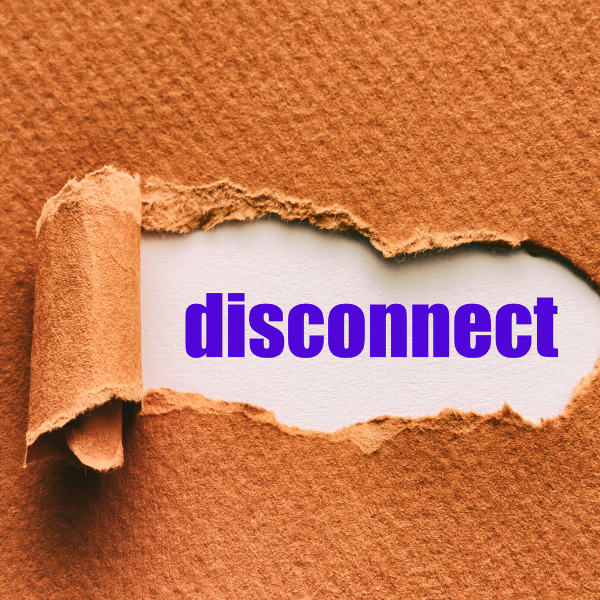All Things Admin Joins ASAP. Learn More ›
How to Choose an AI Tool
July 16, 2024

Wondering which AI tool is right for you? AI expert and former executive assistant Robyn Greaves shares her tips for selection based on your workflow and efficiency goals.
Recorded at EA Ignite Spring 2024 and produced by the American Society of Administrative Professionals - ASAP. Learn more and submit a listener question at asaporg.com/podcast.
Download this episode for later and make sure to leave us a 5-star review on Spotify and Apple Podcasts!
Transcript
[music playing]
Leah Warwick: Hi. I'm Leah Warwick, and you're listening to "The Admin Edge." If you're new here, welcome. And if you're rejoining us, welcome back.
00:00:13
This episode was recorded at the American Society of Administrative Professionals (or ASAP) event called EA Ignite, with guest Robyn Greaves and interview Stephanie Powley. Stephanie serves on the ASAP Advisory Board, and Robin is the co-founder of Start Sort Scale, a former EA herself, and an EA Ignite speaker. Let's listen in to Robyn's conversation with Stephanie on all things AI.
[music playing]
Stephanie Powley: Welcome to the podcast, Robyn.
Robyn Greaves: Thank you, Stephanie. It's great to be here.
Stephanie Powley: Cool. So, obviously, lots of questions about AI. What do you think [is] the number one mistake you see administrative professionals making when they hunt for an AI tool? And how can they avoid those mistakes?
00:01:01
Robyn Greaves: Great question. I think the main problem I see administrative professionals making is asking the question: How can AI help me? That's too big of a question. You need to be much more specific than that. I always recommend asking yourself: What do I need help with? In my role, where do I spend the most time and the most energy? And if you're not sure, you can start by tracking your time to see where you're spending it.
I wouldn't advocate for tracking every five minutes or anything like that because you'll drive yourself crazy, but say blocks of like half an hour for a week, and then you start to get a sense of: Where is all my time, my focus, and my energy going? And that is where I would start looking for an AI tool, to create efficiencies in those areas, because if you start with where you spend the most time, then using the AI is going to have the best impact, and it's going to give you the most efficiencies, because you're already spending time in these areas.
00:02:00
And then once you've kind of decided what your goal is with using AI, what problem you're trying to solve, you also want to be as specific as possible. Different AI tools solve different problems. You might think that saying "an AI tool for calendar management" is enough, but actually, there are lots of different AI tools for calendar management on the market, and they do different things.
It really depends how you do calendaring for your executive, how do the calendars work in your office, and also what are you struggling with, with your calendar? So, like EA Buddy, will help you with time zone conversion and it will create emails for you automatically, and you can copy and paste those and send them straight away. Or others – like I saw the other day called Vast. That helps you by, instead of sort of [how] in your calendar you might list all the information (like your flight time, the reference number, what car is picking you up), Vast has a platform that does that behind the scenes so everything is organized exactly where you want it to be.
00:03:04
So when you look at it, it says flight number, it says departure time. That might be great for you. Some EAs or some administrative professionals might hear that and be like, "Oh, my God." And others might be like, "Meh." Be as specific as possible with what problem you're trying to solve and what the thing is that you want AI to help you with.
Stephanie Powley: On that same topic, let's just say you do this granular assessment of what you need help with, and you've figured out kind of where you need AI's assistance, where's the best place to look for AI tools?
Robyn Greaves: That's a great question. Again, it depends. I would advocate for not looking too broadly. You don't want to be overwhelmed. There are repositories online. There's a website called theresanaiforthat.com that literally just lists all the AI tools.
00:03:56
If you find that exciting, then go there. Have a look around. If you find that terrifying and overwhelming, then don't and that's okay. It can be as simple as doing an online search for "AI tool calendar management," or "AI tool executive assistant calendar management," something like that. It will likely bring up lots of blogs and things often created by certain companies that produce different tools, but it will give you something like top five calendar management tools for AI, top five AI notetakers. So, you can narrow down what you're looking for that way, and also get some sort of – if you find one that's independent, that's not run by the company that makes the tool, you can get someone else's kind of perspective or review or reflection on using it. Just by reading someone's kind of review of a tool, you might think, all right, that's not right for me. Or you might think, oh, amazing. This is what I'm looking for.
00:04:48
Stephanie Powley: Given all of that information, our industries are constantly, acutely changing, sometimes overnight. What's the best way that admins (or really anyone) could keep up with the latest and greatest without feeling like they're constantly chasing a shiny, new toy? I feel like one day we have ChatGPT, and then the next day it's like this wild wizard AI comes out and it does crazy new things. What's the best way to stay up to date?
Robyn Greaves: That's a great question. It is very easy at the moment to feel overwhelmed by just the number of tools available and the possibilities, and that's why I think sometimes it's hard to know where to start, because it's so big.
I would definitely start by, again, focusing on what you do in your role. So when I'm looking at lots of AI content, like newsletters or content on LinkedIn, I'm skimming through, and I split things into "that's interesting" and "that's useful." So "that's interesting" might be they're using AI now in hospitals to detect certain diseases. That's interesting, but it's not relevant to me.
00:05:55
Or they're now using it in the Air Force to fly planes. That's interesting, but it doesn't really [apply] to me, my role and my goals, so I'm just skimming that information. I'm not reading every single thing. I'm looking for specific information, specific content that is about my role, the problems I'm trying to solve. And so, specifically, if there are people posting content or companies that are building tools for admins, those are the ones I would start following because they're trying to solve your problems.
I will say I think it's important to kind of curate online experience, so being in control of the information that we absorb online because, again, there's so much of it. So don't feel like you can't unfollow someone if their content is not useful. I would follow companies on LinkedIn or on Instagram whose tools I use. So, if I love ChatGPT, I would follow OpenAI because the company is always going to shout about their latest update, their latest development, and it's an easy way just to sort of stay on the ball with what's happening.
00:06:56
But if I start following a company and I think, "Oh, they always talk about marketing. That's not relevant to me," then I unfollow them. So, being really conscious of what information we're consuming: Is it relevant, or are we being drawn down a rabbit hole of AI content that has actually nothing to do with our personal experience?
Stephanie Powley: Yeah, I think that that is all very, very good advice. Also, I think one of the things you said is important to point out, especially to people new in the AI world, that "OpenAI" doesn't mean all of the AI in the world. OpenAI is ChatGPT. It's that specific company, and I think that often gets confused, that OpenAI is just like "the market's open; it's all of them" versus just one company.
Robyn Greaves: Yeah, exactly right.
Stephanie Powley: So I'm glad that you pointed that out. How do you suggest admin folks navigate the murky waters of AI bias and ethical concerns? Like how can they ensure that the AI tool that they choose aligns with their organization's values and principles?
00:07:52
Robyn Greaves: That's a really important question. My sort of main piece of advice about this is we don't want to be using AI in a bubble, so we don't want circumstances in our organization where we have 100 people using 100 different AI tools. That's not good for our organization. It's not good for the budget. It's not good for data privacy and data security.
What we want, or what we should be aiming for, is an organization-wide approach to adopting AI. This is sometimes easy and sometimes difficult because it depends on your organization's view about AI. If you work for a company that is slow moving in this space, or you feel like they're not open to AI, or maybe they outwardly say that "we're not using AI," then I would never recommend secretly using it in your role. That's not –
Stephanie Powley: That was going to be my next question for you.
00:08:45
Robyn Greaves: It's not a good idea. What I would recommend is open communication. So, if you want to start using AI in your role, talk to your manager, talk to your executive, talk to your IT team, but have that as an open conversation, not as something that you secretly do. As I said, what we want to get to – how we get greater efficiencies is with lots of people using the same tools. We can save money that way, but also, we can learn from each other because we can start to create things like templates or organizational standards or like, "This is how we use the tool." I've got these prompts that I've written that are good for our organization. Well, let's share those. We can use them in a prompt library so we don't all have to write prompts from scratch.
What we want to see is all of the organization using it. Ideally, organizations would have (or be creating) a usage policy for AI. I really advocate for having an AI committee that drives that within an organization, and also having some AI champions in your organization. Those are the people that just love the technology, and they just want to talk about it and they want to share.
00:09:50
If that's not happening in your business, then potentially there might be an opportunity for you to lead something. Potentially, that might be an option for you. Again, talk to your manager.
If your company is completely against AI – and again, that's not unusual, so don't feel that you're the only one – then I advocate for building your skills in your own time, doing personal tasks with AI, downloading an app on your cell phone, logging in maybe using ChatGPT to plan a birthday party or something like that.
Stephanie Powley: Perfect. What would you say to somebody who's a bit concerned that AI is causing them to lose value? So, it's doing their job for them. There's people out there that are fearful of it in that aspect. What advice would you offer those folks?
Robyn Greaves: Yeah, definitely. I personally see it as it's just a tool and that the AI amplifies the talent that we have. The AI creates time so that we can add more value to our organizations, so that we can be more strategic, so that we can be more creative.
00:11:01
If you think that you can be replaced by an AI notetaker, I would say that either you personally don't understand the value that you bring to the role, or potentially your organization doesn't understand the value. Those are two different things, and we work on those things differently.
If you personally don't understand the value you bring, then I would suggest really looking [at] and thinking about those human skills that you bring to the table. And how can you add more value to an organization by going the extra mile?
If I use an AI notetaker, that frees up my time after the meeting, so I can do things like communicate decisions that were made. I can track action items. I can follow up with people and make sure things are done, because I'm not sitting around, typing minutes, typing up my notes and things.
00:11:45
When you use AI, it's about creating more time. And then what can you do in that time? That's what you want to communicate to your manager, your executive, or whoever is approving your use of AI tools. That part is really important. What are you going to do in this time that you have that is aligned with your organization's strategic goals, that adds more value, that is, as I say, more strategic?
Stephanie Powley: That's a very good answer. We have a listener question for you. This is from Jenna, an administrative assistant from Cleveland, Ohio. She writes: "How do I convince my organization that AI is the future of business, especially for admins, and that we need to be training in and embracing it?" Sort of what you were just kind of going into, but how do you start that conversation?
Robyn Greaves: That's a great question. Thank you, Jenna. I think the important thing in that question is the "convince" piece. How do we convince people of something? How do we change people's minds? How do we get people to see what we can see? We can see the value of AI for admins, but we need to show other people that value.
00:13:00
What I would suggest as a starting point is you want to focus on the benefit for other people, rather than yourself. So, when we want to convince people of something, when we want to change someone's mind, we want to focus on them. What do they want?
When you're talking to, let's say, your executive or your manager, how does using AI help them? This could be something like, as I said previously: How can you add more value in your role? How can you maybe take on extra projects or take no extra duties because you have more time? Focus on what your manager, your team, your clients or your customers – how is AI going to make their experience better if you use it?
Stephanie Powley: The "what's in it for me?"
Robyn Greaves: Exactly. Always focus on the person that you're trying to convince rather than yourself, which can be hard to do because we just really want to use the AI. We really want the training. How does getting that training help other people?
00:13:58
Stephanie Powley: That's good stuff. Well, thanks again for joining us at "The Admin Edge." Where can listeners find you online? Are you somebody that can advocate for them, or they can send you a message or ask questions about AI?
Robyn Greaves: Absolutely, yeah, of course. LinkedIn is absolutely the best place. I'm always on LinkedIn, so you can just search me, Robyn Greaves. Add me on LinkedIn. I was an executive assistant for 15 years, so I do understand the challenges in the admin space. I'm really passionate about administrators and happy to answer any questions. Reach out to me. I'll try and point you in the right direction.
Stephanie Powley: That's awesome. Thank you so much.
Robyn Greaves: No, it was lovely. Thank you.
[music playing]
Leah Warwick: Thank you for listening to "The Admin Edge," produced by the American Society of Administrative Professionals. Original music and audio editing by Warwick Productions, with audio and video production at EA Ignite by 5Tool Productions. If you liked this podcast, please leave us a nice review and five stars wherever you listen to podcasts, and subscribe. If you'd like to submit a listener question, you can do so on our website at asaporg.com/podcast.











